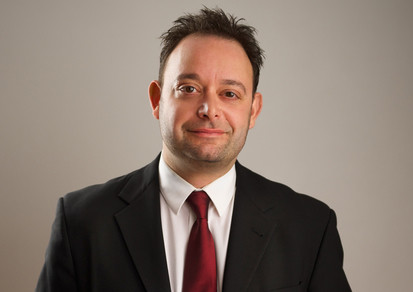Good idea: A German anti-Semitism commissioner
There’s an intense debate in Germany now about whether to create a post for a federal commissioner to deal with the growing problem of anti-Semitism.
The proposal—originally floated by parliamentarians from the left-wing Green Party—has taken on an added urgency following the spate of demonstrations around Germany that accompanied President Trump’s decision on Dec. 6 to recognize Jerusalem as Is-rael’s capital. In several cases, including at a rally at Berlin’s landmark Brandenburg Gate, the mainly Muslim protesters burned Israeli flags while waving Turkish and Arab ones, and chanted “death to the Jews.”
Many German politicians, including Justice Minister Heiko Maas, believe that the crea-tion of a commissioner’s post will send a clear signal that there is zero tolerance for anti-Semitism in modern Germany. Some members of the ruling CDU party are also calling for the burning of the Israeli flag to be made a criminal offense, with deportation as the punishment for any foreigner who defies the law on that point.
Both those views are to be applauded. From what I have seen in the German press, there is a laudable willingness, at least on the center-right and the center-left, to recognize that anti-Semitism—or “Judenhass,” as it is more evocatively called—has become embedded within Germany’s Muslim communities. This should not mean, as the head of Germany’s Jewish community Josef Schuster noted, that the problem of far-right anti-Semitism, in the country that spawned National Socialism, should be ignored or downplayed; rather, what needs to be understood is that we are dealing with two distinct challenges that fre-quently overlap.
Violence based on anti-Semitic belief is the most obvious common factor here, not just in Germany, but elsewhere in Europe. What else, other than a burning hatred of Jews, led the Islamist terrorist Mohammed Merah to enter the courtyard of a Jewish school in the French city of Toulouse in March 2012, brandishing a gun with which he murdered a teacher and three young children? What else, for that matter, lies behind the lesser, but still ugly, incidents that we read about from the Amsterdam rabbi whose windows were broken by Jew-baiting thugs to the anti-Semitic riots in the Swedish city of Malmö?
I feel it is necessary to be extra clear here. Anti-Semitism is a distinct form of hatred—not worse than, not better than, but distinct from. For example, anti-Semitism is far more politically promiscuous than other forms of racism, settling with ease on both left and right. Or, to take another example, deep within the anti-Semitic worldview is a stress on “original sin” that is absent in other racist discourses. Jewish culpability for the death of Jesus is one ancient example, Zionist culpability for the dispossession of the Palestinians is a modern one.
That Jews feel a natural solidarity with the victims of other forms of racism doesn’t mean that we should compromise our analysis of the problem—which includes establishing why it is that European Muslims, themselves indubitably victims of racism, tolerate in their midst the merchants of genocide against the Jews? Finding credible answers to that question should be the first job of any minister or public official tasked with combating the longest hatred.
Ben Cohen’s column is distributed by JNS.

 48.0°,
Light Rain
48.0°,
Light Rain 




